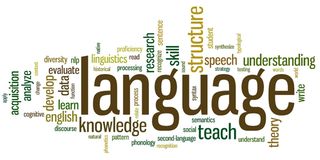Prime
Celebrating linguistic diversity without an elevated national language

What you need to know:
- This year’s celebrations happened a few days after the gigantic graduation party of the MasterCard Foundation Scholars Program of Makerere University.
On February 21, 2023, the world marked 23 years since the first International Mother Language Day was observed globally. With different themes, International Mother Language Day is celebrated yearly to enhance multilingualism and cultural and linguistic diversity across nations.
This year’s celebrations happened a few days after the gigantic graduation party of the MasterCard Foundation Scholars Program of Makerere University. MasterCard Foundation represents Uganda’s linguistic diversity because it supports talented but disenfranchised students nationwide.
Uganda’s linguistic diversity was exhibited at the MasterCard graduation ceremony when graduates were tasked to thank their guardians/parents for their academic milestones. The appreciation was required to be in graduates’ native languages. In other words, while the linguistic diversity was representative, the master of ceremony kept shuffling across languages, given that a more significant section of the audience barely ‘understood’ English, Uganda’s first official language.
This situation reminded me of Uganda’s ‘de jure’ national language, Kiswahili, also constitutionally provided as the country’s second official language.
Unlike official languages that must be used for specific purposes, e.g., international engagements, the national language is mainly for ‘internal’ communication in a particular country or region.
In most cases, national languages serve and signify the country’s national symbol. Yes, official languages are formally learned in school, and national languages are ‘informally’ acquired as long as mechanisms are in place.
Unfortunately, when Idi Amin, by decree, declared Kiswahili as Uganda’s national language in the 1970s, there were no viable mechanisms to promote it. Well, he directed its introduction to the national broadcasters - the only radio and television in Uganda by then.
Nonetheless, Radio Uganda was already grappling with programming in several indigenous languages, including English and Hindustani. This partly challenged Kiswahili to break through via the airwaves.
In today’s Uganda, while Kiswahili is in the national broadcasters (even in other private stations, for mainly news bulletins) exists, few Ugandans can use it as a national symbol, yet, Idi Amin’s decree has not been repealed. In other words, in the absence of an elevated national language and limited proficiency in using the official language, some native languages tend to exhibit and develop hegemonic elements.
Indeed, the above practices are continuously widening the communication gaps among Ugandans. In fact, such practices also bring about overlaps in language use, especially now that Uganda’s language policy is unclear regarding its provisions, implementation strategies, and practices.
To be precise, by borrowing from Nsibambi (2014: 294), I also emphasize a need to elevate a national language(s) given that “[a] widely understood national language enhances national integration because it enables different ethnic groups to communicate with each other at both the horizontal and vertical levels.” For God and my country.
The author, Dr. Caesar Jjingo, is a Kiswahili pedagogy and materials development specialist at Makerere University.
[email protected], @cjjingo




